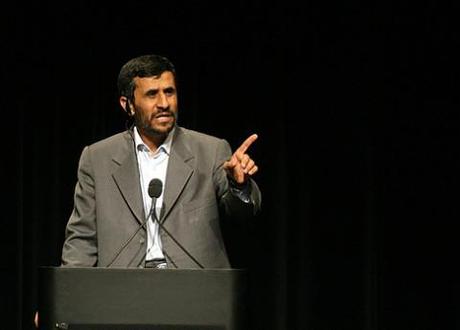
President Mahmoud Ahmadinejad - involved? Photo credit: Daniella Zalcman http://www.flickr.com/photos/midnightquill/1435157946/
Analysts, politicians, and countries are all still scrambling to make sense of the allegations made by the US, that Iran plotted to kill Adel al-Jubeir, the Saudi Ambassador to the United States. If proven, the plot would represent an “uncharacteristically bold” move from Iran and have ramifications felt throughout the world. While there are currently far more questions than answers that’s not stopped the commentariat from mulling the long-term impact of the alleged plot.
Worsening hostility. Writing for the The Daily Telegraph, Shashank Joshi warned that the failed plot will “intensify the tension” between Iran and Saudi Arabia. This development will add fuel to the fire of the long running “Middle Eastern Cold War” between Saudi Arabia and Iran. Despite the long history of tension, this move could bring the conflict to a head.
“With Iran’s nuclearisation, and the inevitable reaction from Saudi Arabia, will make the rivalry so far look like a picnic”, wrote Joshi.
A genuine plot? Patrick Cockburn, writing in the Independent, likened the claim, which “goes against all that is known of Iran’s highly sophisticated intelligence service”, to that of Colin Powell’s in 2003, when he asserted that Saddam Hussein was developing weapons of mass destruction. “None of this makes sense”, he despaired. The Guardian questioned why Iran’s leader, Ayotollah Ali Khamenei, or President Mahmoud Ahmadinejad, would risk so much on such a precarious plot, and why the Quds force, accused of carrying out the attack, would “throw its professionalism and caution to the wind?”
US response. The Washington Post reported that US officials are “scrambling in search of new punitive measures to impose against a county that has already been hit with multiple rounds of sanctions.” David Rothkopf of Foreign Policy warned that finding effective penalties is going to be difficult, so “you have to assume that whatever the United States comes up with is going to be weaker and less effective than would be optimal. And the result will be a message to the Iranians that the downside risk of exploring such initiatives is fairly minimal.”
US at war? A New York Times editorial cautioned that “steely restraint and a dispassionate, effective response are needed [from the US]. Not another shoot-first-and-ask-questions-later war.” But Cockburn wrote, “the problem is that the US government has very publicly committed itself to a version of events, however unlikely, that, if true, would be a case for war against Iran.”
More unanswered questions. The situation remains a puzzle. The operation could still prove to be the work of an extremist cell, rather than a sanctioned attack, and it is still unclear where the $100,000 that allegedly funded the mission originated came from. The sloppy scheme and “amateurish” execution raise further questions about the plot’s veracity, while the unusual involvement of the Mexican drug cartel only thickens the plot.
More on the Middle East
- US accuses Iran of terror plot
- Violence erupts in Cairo
- Saudi woman escapes lash
- Palestine’s bid for statehood
- Gilad Shalit in prisoner swap deal

